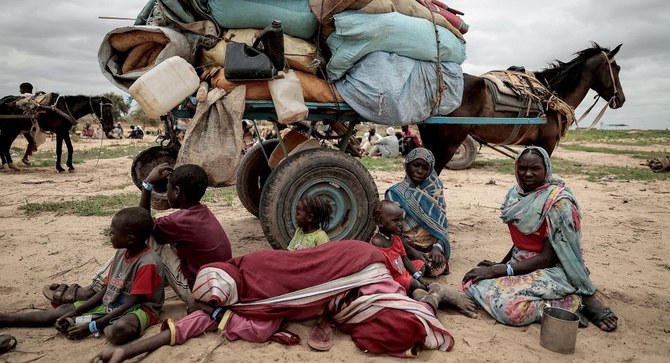
Easter Sunday is a joyous day for Christians the world over. It commemorates the foundation of their faith — the resurrection of Jesus Christ and his assurance to them that “he that believeth in me shall never die.” But this Easter has brought shock and grief thanks to the attacks in Sri Lanka, where eight well-coordinated bombings claimed 359 lives and injured more than 500 people.
Suicide bombers attacked three churches in different parts of the country and three luxury hotels in Colombo, as well as two other locations, one a zoo and the other a private home, possibly the safe house of the terrorists that was blown up during a police raid. Explosives have been defused at a bus station, an airport and outside a church.
Prime Minister Ranil Wickremesinghe has called for national unity in the face of this calamity, but has also highlighted the deleterious role of domestic politics in the tragedy: Foreign agencies had warned the Sri Lankan authorities about these attacks several days earlier, but the PM claimed this information was not shared with him by President Maithripala Sirisena. The latter had tried to oust him in October last year but was compelled to reinstate him by court orders. However, the prime minister continued to be excluded from security briefings. A minister has accused security officials of “negligence and incompetence.”
The Sri Lankan government has named the hitherto little-known militant outfit National Thowheed Jamath (NTJ) as the perpetrator of these attacks. Later, the defense minister named the Jammiyathul Millathu Ibrahim (JMI) as its associate, but gave no details. The NTJ had previously been responsible for the vandalism of Buddhist statues, but not for any major acts of violence. Hence, Sri Lankan leaders believe that the latest attacks might have been instigated by a “wider international network,” probably Daesh.
Sri Lanka has experience of a long period of domestic strife due to the 25-year insurgency led by the Tamil Tigers, which claimed about 80,000 lives and ended only in 2009 with the death of its leader, Velupillai Prabhakaran. While Sri Lanka did not experience religion-based divisions, the conflict did heighten the sense of identity among the majority Sinhalese population, along with concerns that the Buddhist character of the country was under threat in the pluralist nation.
Champa Patel, the head of the Asia-Pacific program at Chatham House, wrote last year that Buddhists, organized under the militant Bodu Bala Sena group, had identified Muslims as “a religious, cultural and economic threat” to Sri Lanka. They carried out systematic acts of violence against mosques and Muslim businesses, which led to the declaration of a 10-day state of emergency in the country last March. Patel had then criticized the country’s “culture of impunity” and urged the Sri Lankan government “to hold people accountable for acts of violence against Muslim communities.”While these events may have radicalized sections of the Muslim community, Sri Lanka has not had a history of Islamic-Christian tensions or attacks on churches by Muslims. Hence, the attacks on Sri Lankan churches this Easter suggest that the instigation may lie outside the country.
It may be recalled that, after the attacks on two mosques in New Zealand in March, Daesh spokesman Abu Hasan Al-Muhajir had, in a 44-minute diatribe, demanded that supporters of the “caliphate” take revenge. This speech was widely circulated on social media and had led to increased security at churches and other places of worship in many countries, including India. Observers have pointed out that Daesh has a long history of attacks on churches, including in Egypt, Indonesia and recently in the Philippines.
Daesh’s role in the Sri Lanka bombings has also been indicated by the relative sophistication of the attacks. Security experts have noted that they were carried out simultaneously and that all the suicide vests worked effectively, confirming both skill in bomb-making and access to financing and high-quality explosives.
Some Daesh-related social media accounts have provided the names and pictures of three of the perpetrators, with the Daesh flag forming the backdrop. One of them was identified as Abu Ubaida, the nom de guerre of NTJ activist Zahran Hashim. Sri Lanka security officials had admitted in 2016 that 32 Muslims had gone to Syria to join Daesh and, with the collapse of the “caliphate,” there were fears of a blowback from those who returned home.
Ten years after the world’s longest fight against terrorist violence ended, Sri Lanka is on the edge of a new domestic confrontation, one that this time is faith-based. Unless there is effective government action to control extremists on all sides, the country could plunge into a fresh bout of blood-letting that could be as lethal as the previous conflict. However, deep differences among the nation’s leaders do not give much reason for optimism.












